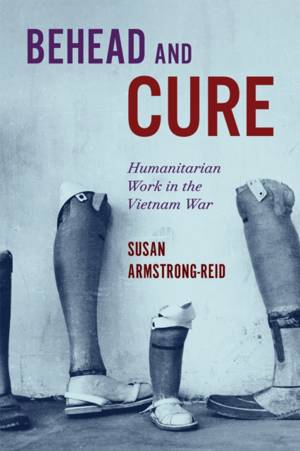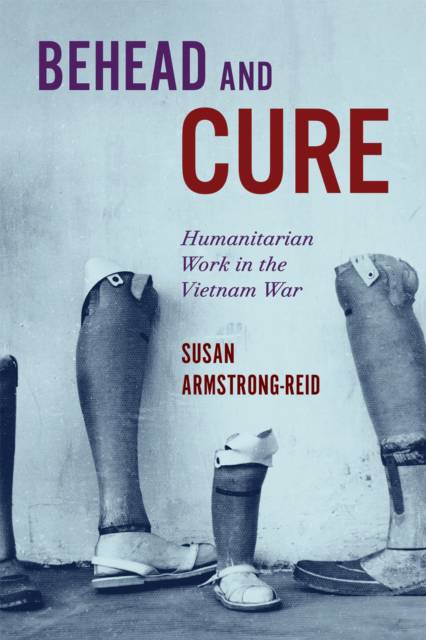
- Afhalen na 1 uur in een winkel met voorraad
- Gratis thuislevering in België vanaf € 30
- Ruim aanbod met 7 miljoen producten
- Afhalen na 1 uur in een winkel met voorraad
- Gratis thuislevering in België vanaf € 30
- Ruim aanbod met 7 miljoen producten
Zoeken
€ 39,95
+ 79 punten
Omschrijving
The war in Vietnam was an ethical minefield for the medical humanitarians who volunteered to treat the injured and dying. The United States government used humanitarian aid as a counterinsurgency strategy and weapon of war. The Vietnamese people could not understand why the Americans and their allies sought at once to attack them and to save them by providing medical care. Civilian medical teams increasingly questioned their complicity in the war and whether neutrality was possible. Behead and Cure explores the ethics of humanitarianism in Vietnam through the stories of seven medical teams from the United States, Britain, Canada, and Australia. Non-combatant women played key roles in all aspects of caring for civilians; this book repositions them from the sidelines of the Vietnam War to the centre. Drawing on interviews and first-hand accounts, Susan Armstrong-Reid considers how personality, life experience, place, and the culture of medical teams affected women's professional and personal lives in Vietnam and their lives afterwards. Confronted daily with the horrors of war, they were expected to fulfill their gendered roles as purveyors of Western medical care, humanitarian ambassadors, and models of femininity. Some proved resilient and pursued a lifelong commitment to peace movements and humanitarian causes. Others suffered burnout and sought to expunge the memory of their years in Vietnam. Behead and Cure provides a new perspective on the ethical dilemmas facing humanitarian workers and the collateral human costs of war that remain timely today. It reveals how the experience of Vietnam changed humanitarians' views of their profession, their own countries' foreign policies, and the place of the United States in the world.
Specificaties
Betrokkenen
- Auteur(s):
- Uitgeverij:
Inhoud
- Aantal bladzijden:
- 444
- Taal:
- Engels
- Reeks:
Eigenschappen
- Productcode (EAN):
- 9780228025559
- Verschijningsdatum:
- 14/10/2025
- Uitvoering:
- Paperback
- Formaat:
- Trade paperback (VS)
- Afmetingen:
- 152 mm x 229 mm
- Gewicht:
- 625 g

Alleen bij Standaard Boekhandel
+ 79 punten op je klantenkaart van Standaard Boekhandel
Beoordelingen
We publiceren alleen reviews die voldoen aan de voorwaarden voor reviews. Bekijk onze voorwaarden voor reviews.








